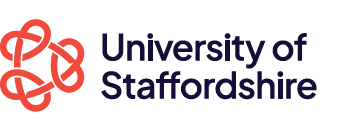As a Computer Games Design and Programming student, you'll learn how to use industry-standard design and development techniques to take your game ideas from concept to final release. You will also learn how to create or modify game engine technologies.
This course, run in collaboration with the games industry body TIGA, will provide you with the skills required for a career in game development centered on the use of multiple game technologies. This course has been designed to meet the needs of the games industry, with a focus on developing design, programming, and production skills.

University of Staffordshire
Computer Games Design and Programming BSc (Hons)
Entry Requirements
112-120 UCAS Tariff points
- GCE A Levels - grades BBC or equivalent
- Pearson BTEC National Extended Diploma - grade DMM
- Access to HE Diploma - Pass Access with a minimum of 80 UCAS tariff points. Applicants to Staffs who are taking the Access to HE Diploma receive a reduced tariff point offer as part of our access and participation plan activity
- UAL Level 3 Extended Diploma - grade of Merit overall
- OCR Cambridge Technical Extended Diploma - grade DMM
- T Levels - Eligible T Level applications will be asked to achieve a minimum overall grade of P (A*-C) or Higher Pass as a condition of offer
Career Prospects
Graduates from our Computer Games Design and Programming award possess the skills to undertake a wide variety of industry jobs from small self-published titles to AAA blockbusters.
Recent graduates have worked in roles such as Unity/Unreal games developer, graphics programmer, senior functional tester, and augmented/virtual reality application developer.
Course Details
A In Year 1, you'll learn the fundamentals of programming with C++ for engine creation, hone your game design and development skills with the industry's leading game engines, and apply rapid game prototyping skills to design and demonstrate your own innovative game ideas. This year's work will take you from concept generation to gameplay prototype using visual scripting, C#, and C++ in both existing engines and your own coding frameworks. There is no prior coding or game engine knowledge required, only a desire to create your own games.
As a junior member of a full development team, you will work on a collaborative group project in Year 2. You will broaden your understanding of game engines and continue to hone your programming skills in C++ and C#. Optional modules allow you to hone your skills in 2D/3D asset creation, 3D graphics programming, user interface design, and level design. This year, you will be able to design and develop your own full-fledged indie game title using industry-standard production methods as well as advanced engine and programming techniques.
Year 1
C# Scripting For Games Engines 20 credits
Computational Methods 20 credits
Game Prototyping 20 credits
Introduction To Graphics Programming 20 credits
Mechanics Prototyping 20 credits
Programming Fundamentals 20 credits
Year 2
Compulsory Modules
Advanced Mechanics Design 20 credits
C++ For Engines 20 credits
Game Artificial Intelligence 20 credits
Introduction To Mechanics Design 20 credits
Junior Collaborative Games Development 20 credits
Optional Modules
Experimental Gameplay 20 credits
Game Audio 20 credits
Tools Development 20 credits
User Interface Design And Implementation 20 credits
Year 3
Compulsory Modules
Games Development Project 40 credits
Low-Level Gameplay 20 credits
Multiplayer Level Design 20 credits
Senior Collaborative Games Development 20 credits
Optional Modules
Multiplayer Mechanics Programming 20 credits
Prototyping For Technical Designers 20 credits
Are you ready to start building your future?
Contact our admission counseller and get a free consultation.













